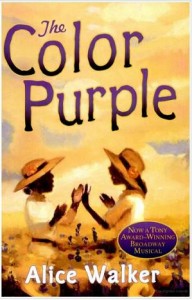 Throughout December, a parent in Brunswick County, North Carolina, waged a war against Alice Walker’s Pulitzer Prize winning novel The Color Purple. That war has been lost with the recent decision by the school board to retain the book in 11th and 12th grade advanced placement courses.
Throughout December, a parent in Brunswick County, North Carolina, waged a war against Alice Walker’s Pulitzer Prize winning novel The Color Purple. That war has been lost with the recent decision by the school board to retain the book in 11th and 12th grade advanced placement courses.
CBLDF joined a coalition led by CBLDF-sponsored Kids’ Right to Read Project to send a letter in support of the book. CBLDF joins coalition efforts like this one to protect the freedom to read comics. Censorship manifests in many ways, and the unique visual nature of comics makes them more prone to censorship than other types of books. Taking an active stand against all instances of censorship curbs precedent that could adversely affect the rights upon which comics readers depend.
Brunswick Country Commissioner Pat Sykes began her campaign against the book, citing “the immorality, the filth, the F word, and N word” as reasons the book should be banned. She even equated the book with pornography in her original complaint: “You need to be 21 to drink but we provide porn.” The review committee unanimously supported the retention of the book, but Sykes remained adamant in her crusade. She appealed the decision to the county commissioner, who also ruled the book appropriate. A further appeal took the books fate to the county school board.
In a special meeting, the school board initially voted against the book, but immediately corrected their error when legal counsel advised that the first vote effectively banned the book. Despite the retention, the school board will be reviewing their materials selection process in a meeting later this month.
The Brunswick County School Board announced their decision with the following press release:
Alice Walker’s novel, The Color Purple will remain an instructional resource for 11th and 12th grade Advanced Placement courses and the Board of Education will be taking a closer look at policies addressing selection of instructional materials and parental inspection and objection of these materials.
These decisions came after a special called meeting held earlier today which included presentations from Pat Sykes, who originally issued the formal book challenge, members of the West Brunswick High School-School Improvement Team, and Superintendent Edward Pruden. Thirteen public addresses were made by members of the community expressing personal feelings about the novel and its instructional merit.
After a great deal of discussion and receiving clarification from legal counsel that their initial 3-2 vote had in effect banned the book, the Board quickly reversed their vote. The final motion which passed 3-2 upheld Pruden’s decision for the novel to remain an instructional resource for 11th and 12th grade Advanced Placement courses and in the media collection. This motion also included a review of the two district policies that address materials selection and parental inspection and objection to those instructional materials.
The policies will be reviewed January 21 during the regular scheduled committee meetings.
The decision rightly upheld a key argument in the letter CBLDF signed:
While parents are free to request an alternative assignment for their children, they have no right to impose their views on others or to demand that otherwise educationally worthy materials be removed, merely because they consider them objectionable, offensive, or inappropriate.
You can read the entirety of KRRP’s letter defending The Color Purple here. CBLDF applauds the decision to keep the book in classrooms in the Brunswick County Schools.
This was just one book challenge we faced in 2013, a year that saw a notable increase in attempts to ban books. Please help support CBLDF’s important First Amendment work continue in 2014 by making a donation or becoming a member of the CBLDF!